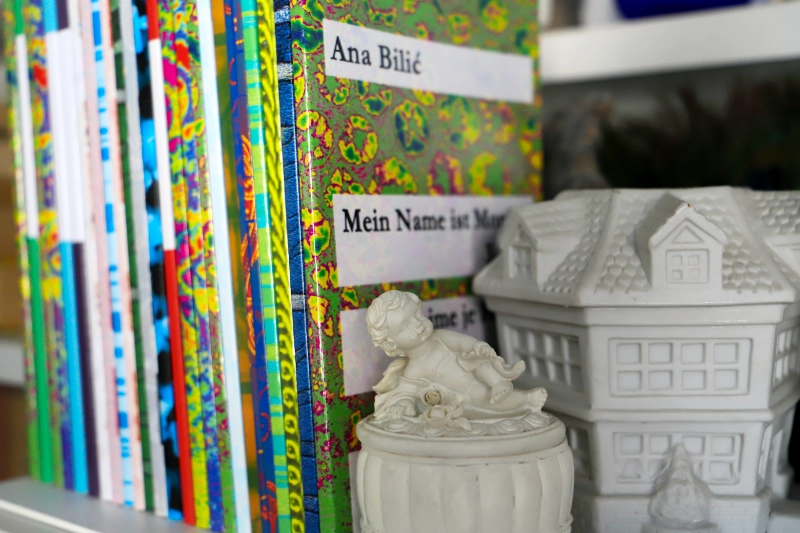How Can a Story Write Itself?
Written by Ana Bilić

The fact that an author’s profession depends not only on inspiration but also on the readership is a constant that you cannot lose sight of – whether you want to or not. Building a bridge with others means articulating yourself communicatively and finding a common (literary) language with your readers. In short: I communicate with myself and with my intimate thoughts so that I can communicate with others. Or: I should know what I want to say and how I want to say it to others. – Put like this, literary writing is comparable to growing up: As a child, you learn what you want and how you want to communicate it to your parents. As an adolescent, you learn what you want and how you want to convey it to those around you. As an adult, you learn what you want in your working life and how you want to communicate this to your working environment. In short: you never stop learning. And learning is something valuable.
Why?
And what does this have to do with literary writing?
As children, we get to know the world around us through play. The world and ourselves. Numerous games help us to do this. We use them to expand our vocabulary, our means of expression and our articulation. We learn to harmonize the flow of thought with the flow of speech. The better we manage and are able to do this, the more influence we have on the people around us. We establish, or try to establish, successful communication. – This can also be applied to literary writing: Play as a writing method. I have found this to be incredibly helpful in my writing practice: putting myself in a situation where I have only a limited vocabulary, modest means of expression and unpracticed articulation. I’m talking about an area of my writing where I teach Croatian as a foreign language: specifically, mini-novels in the Croatian-Made-Easy series for English speakers and the Kroatisch-leicht series for German speakers. I have to write my texts with a limited vocabulary, with modest expression possibilities and not demanding articulation, according to the needs of my foreign-language readership. A very demanding but also very fruitful task. Since the vocabulary and grammar are determined in advance, one achieves a kind of balance of mental power.
I am talking about brain activity.
It’s about the following:
Our left brain thinks in a linear, fragmented and logical way, linking cause and consequence. The right hemisphere thinks in images, contexts and wholes, it combines the individual concepts into a whole. If you get an impulse, a stimulus for the left hemisphere – in my case only certain words are linked to certain grammar rules – a context for this term, a connection is sought in the right hemisphere. This sets in motion a function that we mastered very well as children: play and related combinatorics. Concepts are “immersed” in a certain situation; they are placed in a more or less concrete action and appear “vividly” as images. The story writes itself, so to speak. Of course – this is only half the work; the story is not over yet. The other half of writing is editing and correcting. But one thing is certain: my didactic literature helps me to improve my writing style, expand my imagination and enjoy my writing even more.
My recommendation to anyone who is just starting to write literature:
You learned a foreign language at school. Try to write a short story or a text in this language. Determine a few words in advance that you want to or can use. Try to put these words into context. Don’t think too much about it – combinatorics are innate to humans: this is called natural intelligence. Let your text surprise you.
And the new joy that you will experience.
More Blog Posts
-
7 Phases of Writing a Text
-
Of Favorite Novel Characters and Shakespeare's Characters
-
On the Uncertain Freedom of Being and The Great Gatsby
-
The Last Sentence – the Answer and the Fruit
-
About the Blue Portrait, or About Words as My Friends
-
How Can a Story Write Itself?
-
How Does a Writer Improve in Their Writing
-
Something Like an Eternal Literature
-
A Good Writing Style, or the Author's Guided Dialog
-
What Makes a Good Novel?
-
About My Bookcase, Oscar Wilde and My Vocation as a Writer
Impressum | Datenschutz | Kontakt